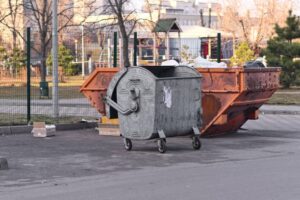Plastic bottles are a stubborn substance that resists decomposition and can live in landfills for hundreds of years. But recycling them through a bottle recycling site Adelaide repurposes the plastic into clothes, carpets and even new bottles.
Reduced Waste
A major benefit of recycling water bottles is that it reduces waste. Rather than just filling landfills, where they take up space and pollute the environment, plastic bottles are used again to make new products. It saves on the production costs of new materials and supports businesses that manufacture products from recycled plastic.
 The process of recycling plastic water bottles starts with collecting the bottles from a central location. They are then shredded with other PET (polyethylene terephthalate) products and melted into pellets. These pellets are then eventually used to create new plastic products, such as water bottles and other beverage containers.
The process of recycling plastic water bottles starts with collecting the bottles from a central location. They are then shredded with other PET (polyethylene terephthalate) products and melted into pellets. These pellets are then eventually used to create new plastic products, such as water bottles and other beverage containers.
A bottle deposit system can help increase recycling rates significantly by providing a strong incentive to return the containers. States with bottle bills report much higher rates of beverage container recovery, and this helps to conserve natural resources by reducing the amount of trash sent to landfills.
Reduced Carbon Footprint
When recycled, these plastics are turned into new products and used as building materials, insulation, and more. Using recycled plastic to make these new items save 66 percent of the energy required to manufacture the same item from virgin materials.
While many states have bottle bill laws to encourage recycling, only some have modernized these programs with higher deposit values and convenient bottle redemption systems. For example, Michigan and Oregon have a high return rate (85%) and redemption rates (54%), respectively. Massachusetts could cut down on plastic litter greenhouse gas emissions and save cities and towns millions of dollars every year by updating its five-cent deposit system to a 10-cent value, setting up accessible redemption sites throughout the state, and expanding the types of beverage containers it accepts.
Reduced Water Use
The production of plastic bottles takes a lot of water. Recycling them via a bottle recycling site Adelaide helps conserve this natural resource and keeps it out of landfills where it can harm wildlife.
It also saves energy, as manufacturing a new bottle from recycled PET requires two-thirds less energy than making it from virgin raw materials. A single recycled bottle saves ample energy to power a 60-watt bulb for six hours.
In fact, if you recycle plastic bottles at a recycling centre, they can be used to make carpeting, furniture, and even outdoor decks. It also reduces pollution. Landfills pollute the environment by contaminating waterways and eating away at natural habitats.
As a responsible consumer, you should always look at your local rules about what you can and cannot recycle. For example, you might have heard that you need to remove caps from water bottles or flatten them so they won’t cause a jam in the processing machines. But this rule may not be necessary any longer.
Reduced Energy Use
When a bottle is recycled, it saves energy that would have been used to make a new one. That is because it takes 75% less energy to recycle a plastic bottle than to manufacture the same bottle from virgin materials.
This energy conservation helps reduce the depletion of Earth’s natural resources. It also helps to mitigate climate change by reducing greenhouse gas emissions.
Plastic bottles are manufactured from polyethylene terephthalate (PET, or #1 plastic) and high-density polyethylene (HDPE, or #2 plastic). The two types of resin are separated by optical scanners at recycling centres to identify them. They are then shredded and melted into pellets, where they are mixed with other plastics to be used to make new PET products.
Be sure to clean your bottle and remove the cap before dropping it off at a bottle depot. Some programs prefer caps left on to avoid loose lids falling out during transportation, while others require caps to be off to ensure that the plastic is clean and free of toxins.
Reduced Chemical Use
When you toss a plastic bottle into the recycling bin, it gets picked up and trucked to a material recovery facility or MRF. There, it’s separated from paper, glass and metal. The plastic bottles are shredded into small flakes about the size of a grain of rice. These are then melted down to become nurdles, which are sold to companies that can turn them into a wide variety of products.
Reduced Noise
The process of recycling glass and plastic, courtesy of the bottle recycling site Adelaide, uses less energy than manufacturing products from raw materials. It also lowers the heat requirements for production and helps reduce carbon dioxide emissions, which contribute to global warming.
It saves space in landfills, as tens of billions of water bottles go to waste when they are thrown away. The vast majority of these bottles end up in the ocean, where they cause damage to wildlife and deplete fish stocks. They are also burned for energy, which releases toxic chemicals and greenhouse gases into the air.